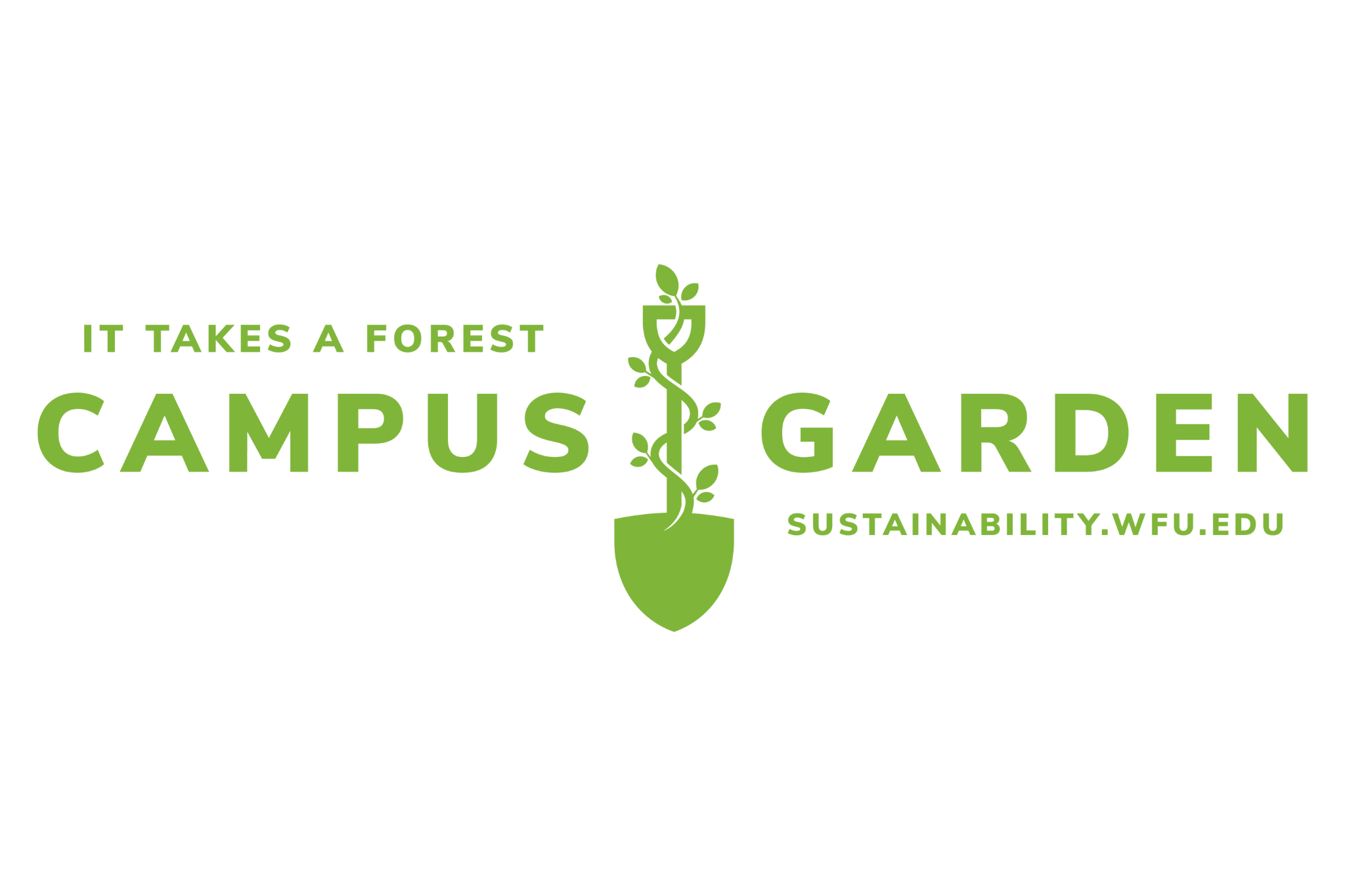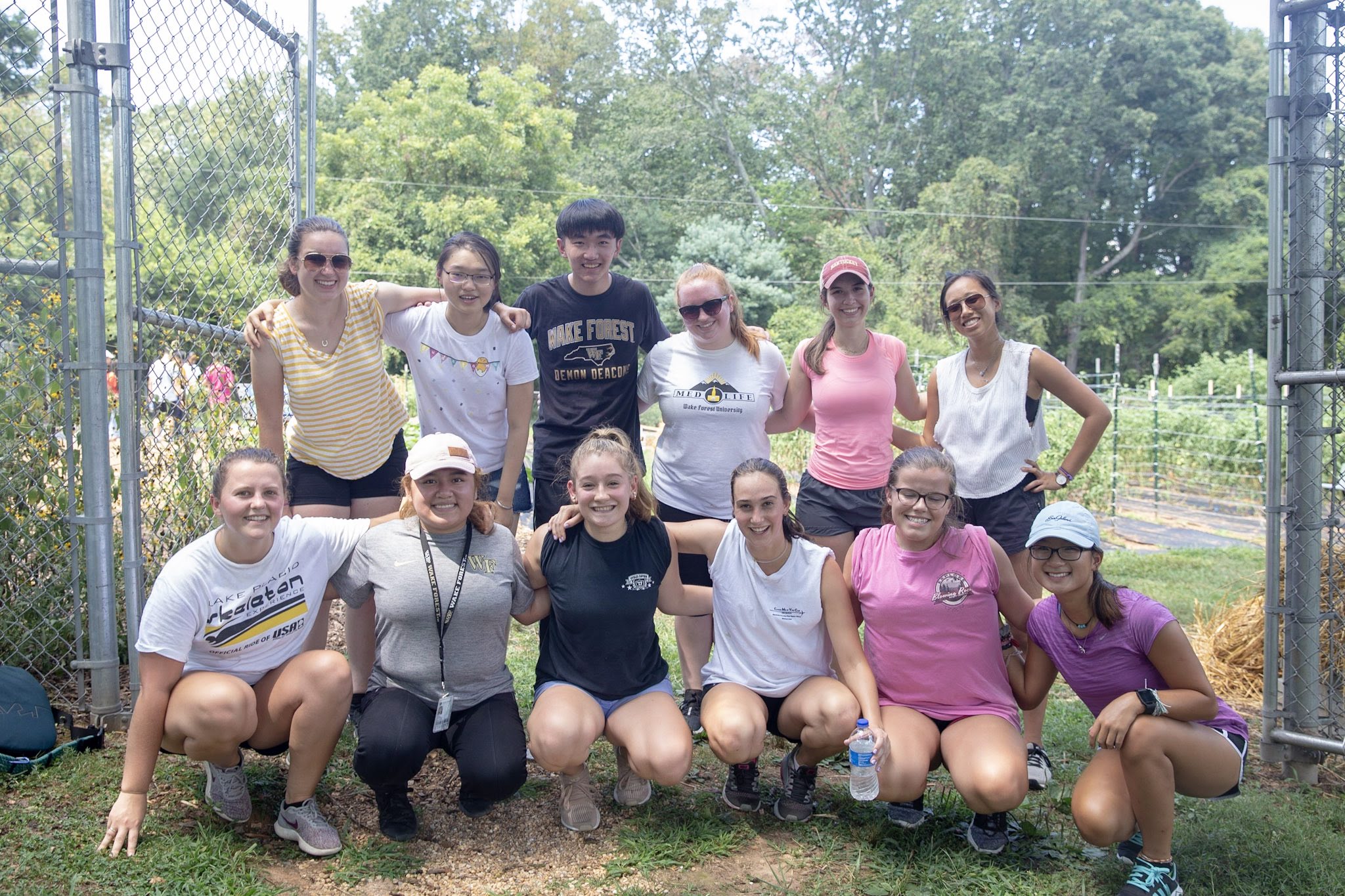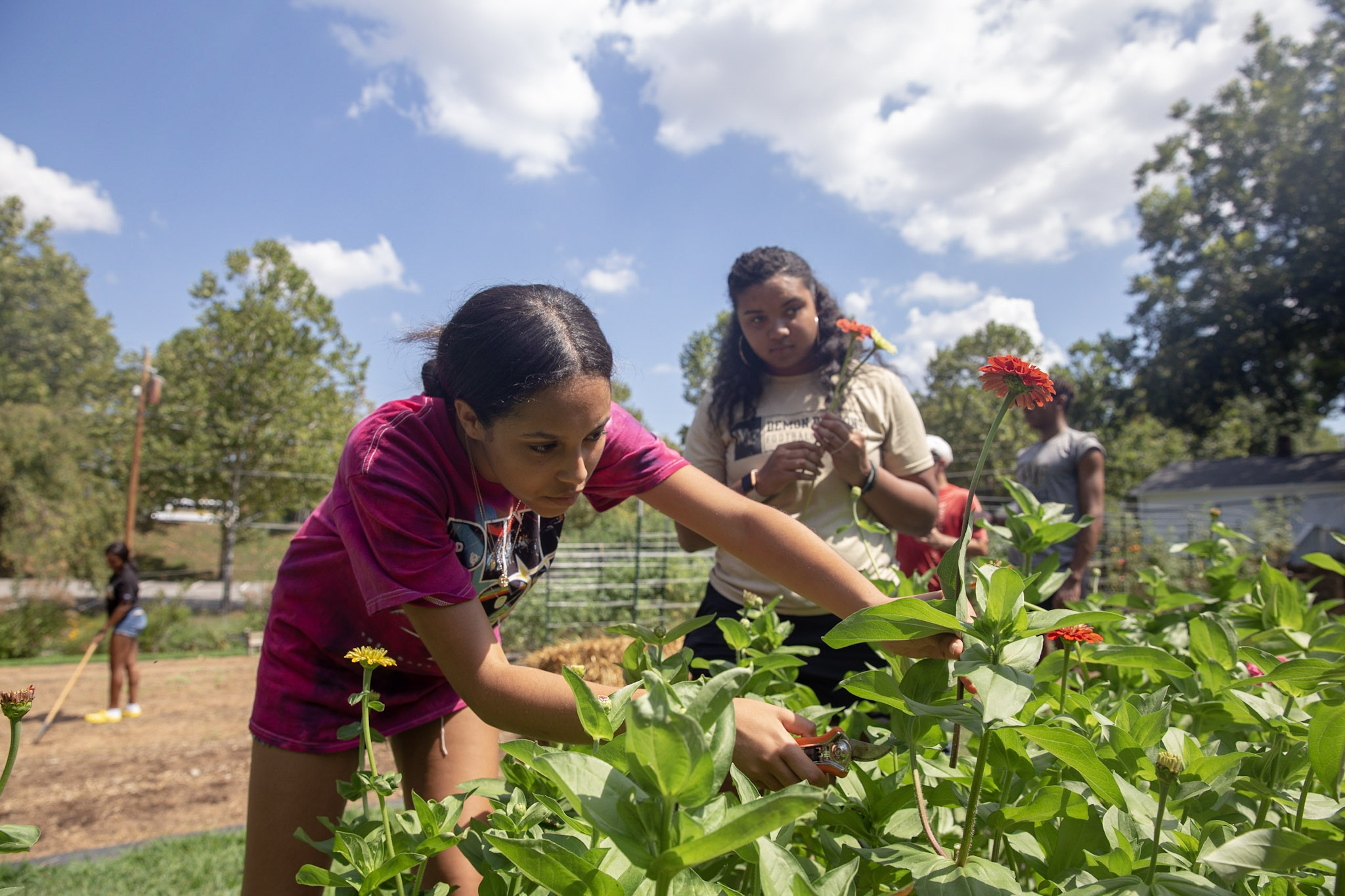The Campus Garden
About the Campus Garden
Wake Forest University’s Campus Garden is an engaged and experiential learning space that demonstrates global climate change solutions on a small scale. The Office of Sustainability has welcomed students, researchers, and community members to the garden since it was established in 2009.
Regenerative agriculture and organic farming practices are employed at the Campus Garden to protect our greatest resource: our soil. Cover-cropping, crop rotation, composting, and low tillage farming help keep our soil healthy and sequester carbon from the atmosphere.
All WFU students, faculty, and staff are invited to enjoy hands-on experiences at the garden, which is located at 1141 Polo Road.
Weekly volunteer sessions, disciplinary-specific class tours, and applied research projects take place in the garden throughout the year. Keep reading and check out the latest news tab to learn about our opportunities.
Latest News
- Contribute to Wake Forest University’s Seed Library
 Traditionally, farmers and gardeners have saved seeds each fall to […]
Traditionally, farmers and gardeners have saved seeds each fall to […] - Welcome Back to the Campus Garden, Deacs!
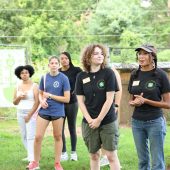 Planting Seeds with Sarah 8.29.2025 Welcome back, Wake! It’s exciting […]
Planting Seeds with Sarah 8.29.2025 Welcome back, Wake! It’s exciting […]
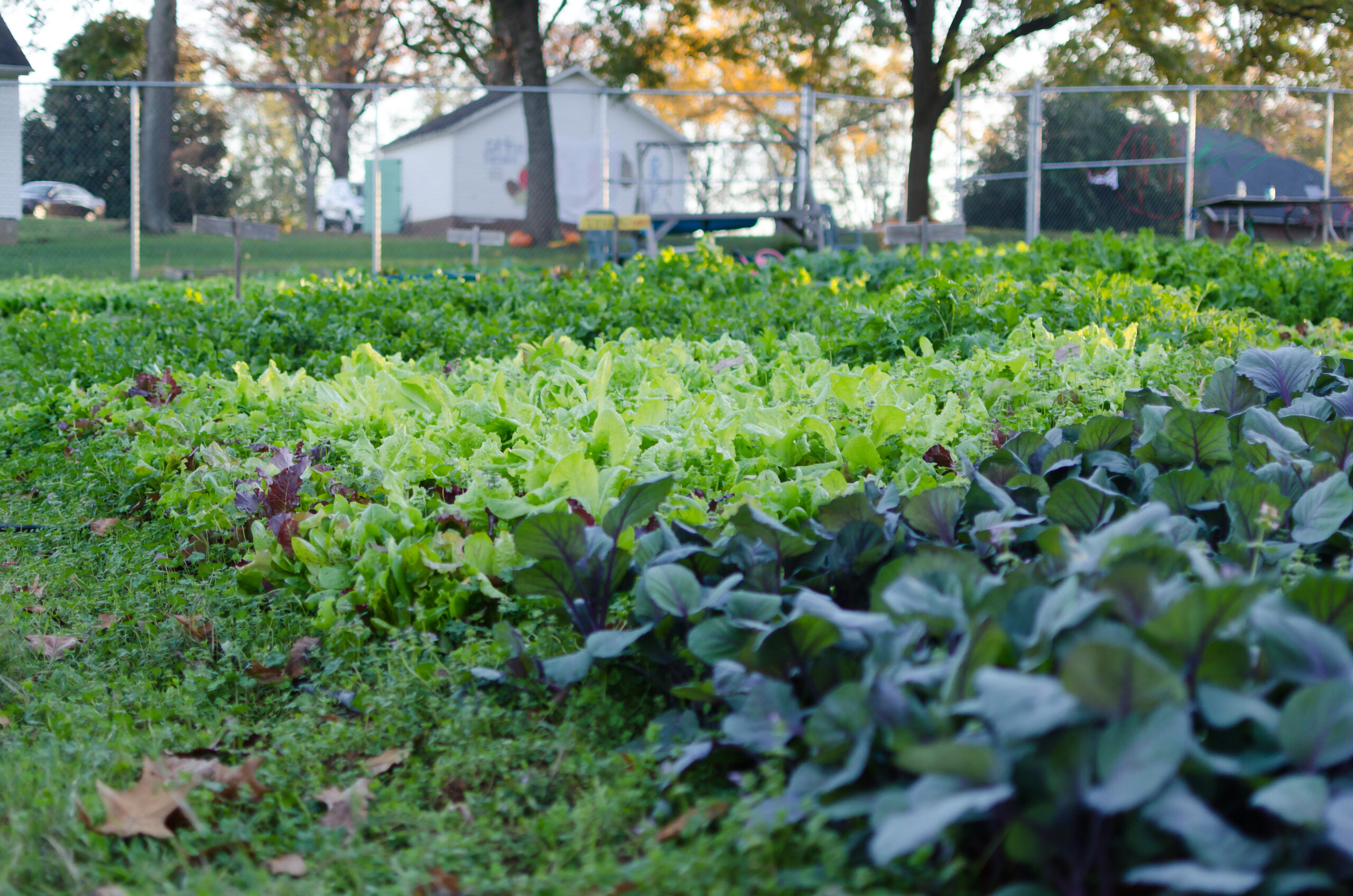
Volunteer, Lead, Learn
Connect & Cultivate Volunteer Hours
Connect & Cultivate is a volunteer program for student, faculty, and staff volunteers to connect with one another and the environment at the Campus Garden. When you attend a C&C volunteer session, you’ll help accomplish gardening tasks, learn about sustainable agricultural practices in the garden, and meet new friends in a relaxed, outdoor setting. C&C volunteer sessions are a time to put your hands in the earth and unwind.
Check the Office of Sustainability’s Instagram (@sustainableWFU) or GivePulse for the most up to date Connect & Cultivate volunteer hours each semester. You can track your volunteer hours by signing up on GivePulse, or you can simply show up at the garden at the designated volunteer session. No advance notice or prior gardening experience is required!
Common Volunteer Activities
Daily Tasks
- Build, shape, and fertilize garden beds
- Spread compost and mulch
- Pull weeds
- Plant seeds and transplants
- Harvest produce
- Turn compost piles
- Water the crops
- Say hello to the chickens and feed them a treat
Special Activities
- Plant and water greenhouse seedlings
- Raise spring chicks
- Grow Oyster Mushrooms in March
- Braid garlic in the fall
- Peel luffa sponges in the fall
Prepare for Volunteer Hours
- Bring a reusable water bottle
- Bring sunscreen, bug spray, a hat, and/or work gloves (clean gloves are available at the garden as well)
- Wear clothing you can get dirty and sweaty
- Wear season-appropriate clothing and dress in layers
- Wear closed-toe shoes (required year-round)
- Please notify the CG Manager if you are allergic to bees, as we have honey bees in a section of our garden. Bring any medication you may require. To date, a volunteer has never been stung at the Campus Garden.
Campus Kitchen Partnership
Garden volunteers are welcome to snack on organic veggies or take some home to cook. However, most of the produce grown at the Campus Garden is delivered to The Campus Kitchen at WFU and incorporated into meals to help alleviate hunger in the Winston-Salem community.
Common Crops in the Campus Garden
Annual Crops are generally sorted by Cool Season (spring and fall) and Warm Season (summer). The Campus Garden also grows a number of Perennial Crops and flowers. Most importantly we grow Cover Crops every season. These annual plants are grown densely and terminated before they set seed. Cover crops protect and improve our soil in many ways.
Cool Season Crops
- Beets
- Broccoli
- Carrots
- Garlic
- Lettuce and salad greens
- Onions
- Potatoes
- Radishes
- Cabbage, collard greens, kale, kohlrabi, swiss chard, turnips

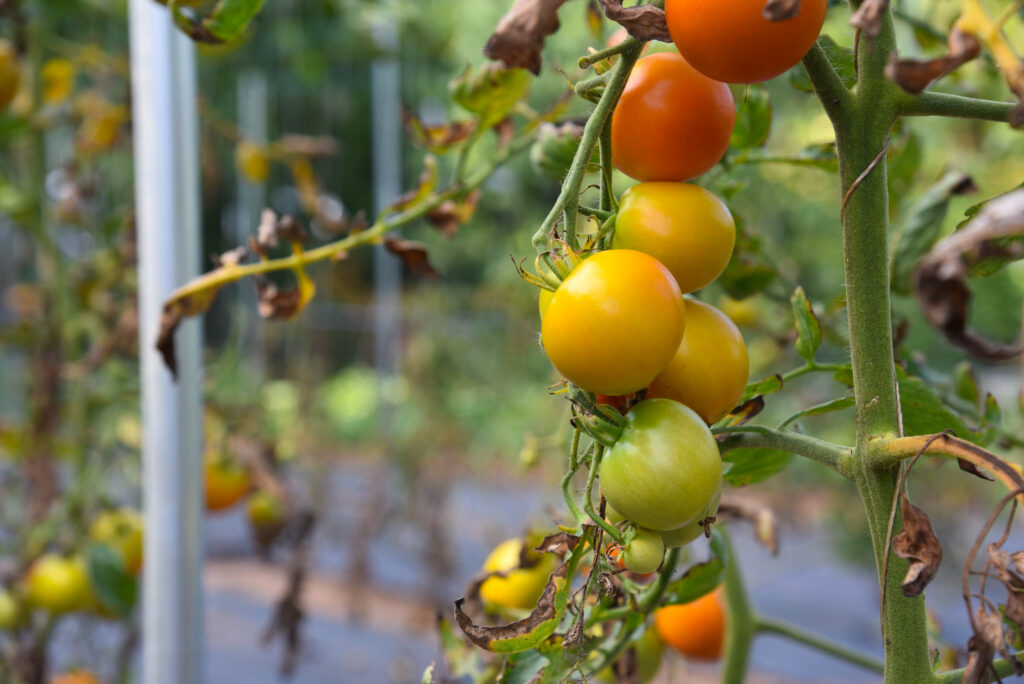
Warm Season Crops
- Heirloom and Research Tomatoes
- Sweet Potatoes
- Green Beans
- The Three Sisters: Sweet corn, acorn squash, pole beans
- Specialty crops: zucchini, eggplant, peppers, basil
Cover Crops
- Buckwheat
- Crimson Clover
- Millet and Cow Pea
- Rye and Vetch
- Sunhemp
- Sunflower
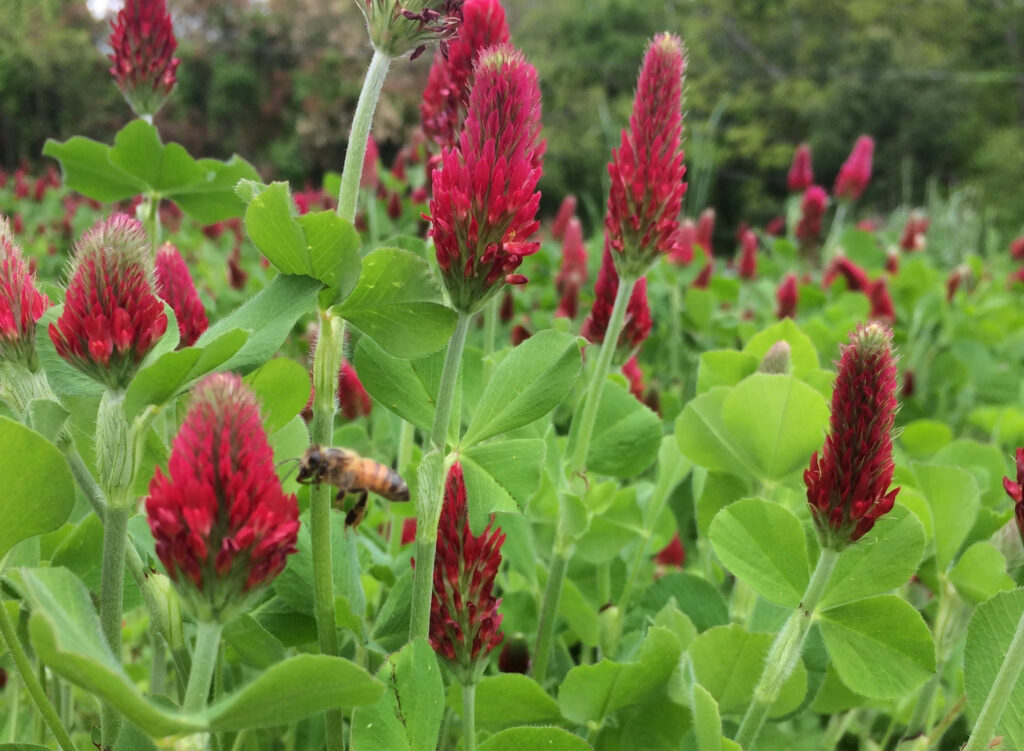
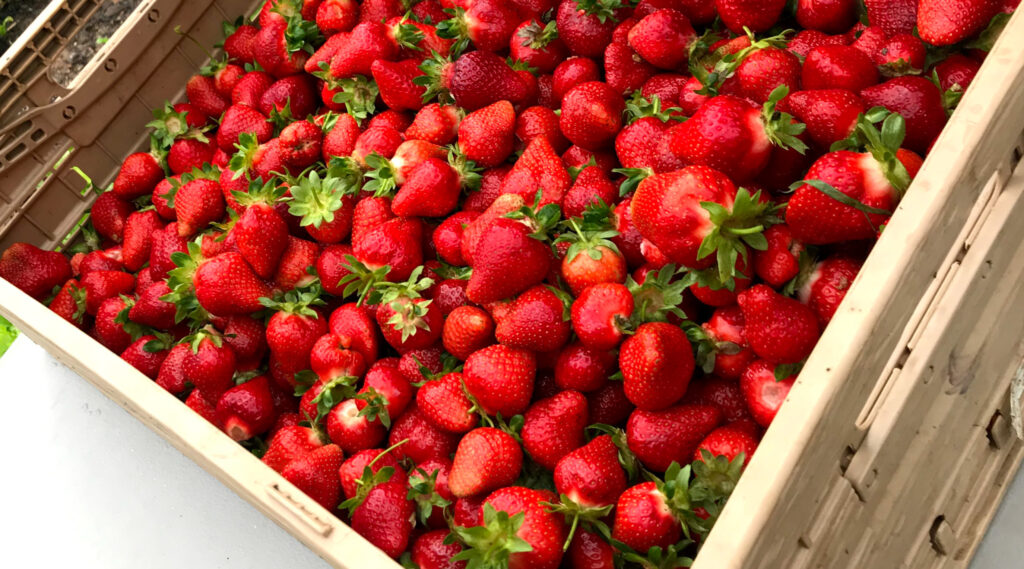
Perennial Crops
- Asparagus
- Strawberries
- Lemon balm
- Rosemary
- Rain Garden grasses and flowers
- Zinnias

